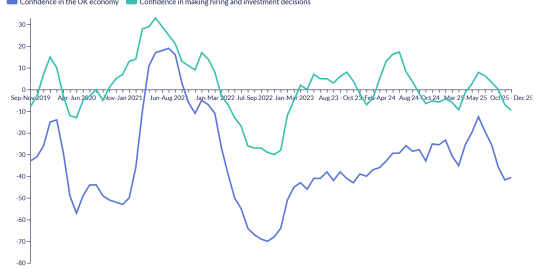The abolition of forced retirement is not only a ‘huge victory’ for workers at risk of being forced out of their jobs because of their age, but is also a ‘landmark’ for the UK society at large, as older workers, the UK economy, public finances and employers will all benefit from this change, says Age UK.
The Charity hailed the announcement that the Government is consulting on scrapping the Default Retirement Age (DRA) from October 2011 as a huge victory for hundreds of thousands of employees who are at risk of being forced to retire at or after reaching 65 for no other reasons but their age. Age UK estimated that around 100,000 workers over 65 were pensioned off against their will in 2009 as employers used forced retirement as a shortcut to shed jobs.
Responding to those employers’ organisations who have lamented the negative impact of this decision on businesses, Age UK stresses that scrapping forced retirement is a ‘landmark’ for our society and points to the Government’s impact assessment to show the UK economy, employers, public finances and older workers will all benefit from this measure.
According to the impact assessment published last week alongside the consultation on abolishing the DRA, employers themselves stand to save £45 million in the first year after the DRA is scrapped, rising to £71 million per year in a decade, against estimated one-off costs of £38 million. The UK economy will also benefit from the increased skills and knowledge available, while the Exchequer will gain an extra £79 million in tax revenues in the first year alone and £132 million extra each year after a decade.
Michelle Mitchell, Age UK Charity Director, said:
“We have led a four year campaign to achieve this historic decision so Age UK is absolutely delighted that the Government is setting a clear date for the abolition of this arbitrary and unfair law.
“Not only is this a huge victory for hundreds of thousands of employees who are at risk of being forced out of their jobs simply because of their age, it is also a landmark achievement for the UK society in the progress towards a fairer and more age-friendly society.
“There’s overwhelming evidence to show that older workers, the UK economy, public finances and employers themselves will all benefit from the announced abolition of forced retirement legislation. The Government has made the right call on forced retirement and we encourage ministers to stand by it.”
Responding to some of the arguments put forward by employers’ organisations, Michelle Mitchell said:
Scrapping the DRA will NOT ‘line lawyers’ pockets’
“Government research indicates that the abolition of the Default Retirement Age will not lead to an increase in the number of legal cases brought against employers. On the contrary, it estimates that there will be between 200 and 400 fewer cases at the Employment Tribunal. This measure will cut the red tape and make employers less liable to compensation claims arising from the incorrect application of the current procedure which is far from simple.”
Older workers will NOT ‘work until they drop’
“People don’t show any intention of wanting to ‘work until they drop’. The average age for retirement has increased over the past decade, but is still below the default retirement age of 65, at 64.5 for men and 62.4 for women. Abolishing the Default Retirement Age does not affect the normal procedures to assess workers’ performances. Employers will still be able to dismiss people on grounds of capability or launch disciplinary proceedings – as long as their decision is not based on someone’s age.”
It will NOT be more difficult for employers to broach the subject of retirement
“There must be a better way of broaching this subject with employees than waving the threat of forced retirement at them. Employers have had years to prepare for this change and are now showing a distinct lack of imagination on this issue. Even so, one of the objectives of the Government consultation is to provide new guidance on how to start discussions on retirement between employers and workers and minimise the risks of disputes.”
There will NOT be fewer jobs for younger workers
“There is not a shred of evidence that younger workers will suffer because of this change in policy. The idea of a finite job market working on a ‘one-in one-out’ basis is simply wrong. Firstly new graduates and experienced older workers are not likely to be competing for the same jobs. Secondly demographic changes over the next 10 years will result in fewer younger people entering the workforce and chasing promotions anyway. And finally, many employees reaching their 60s choose to change jobs, downsize or go part time, leaving plenty of openings for their younger counterparts.“
Employers will NOT lose out from scrapping the DRA
“Government figures show that the benefits of scrapping forced retirement far outweigh the costs for employers. In the first year after the DRA is scrapped, employers are set to gain £45 million, making savings on administrative and policy costs and a cut to retirement red tape, against estimated costs of £38.2 million. While these are one-off costs, the savings will continue far into the future, rising to £71 million a year after a decade. Over four in five employers operating a mandatory retirement age already have performance management systems in place, so the impact on them will be limited. Four out of five of requests to continue working past retirement age are accepted anyway, so scrapping the DRA can only be good for employers as it means there will be less form-filling for them to do.”




